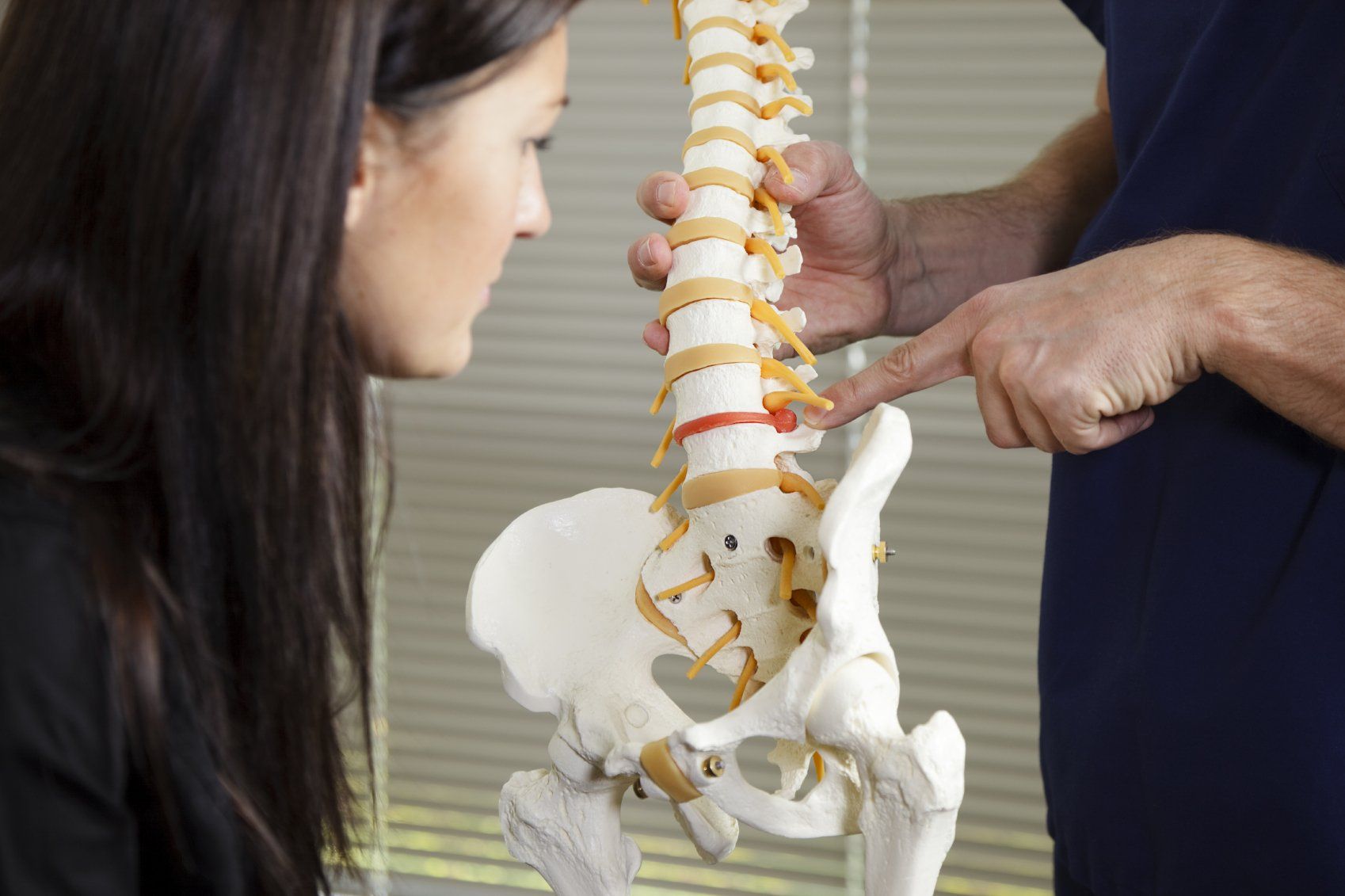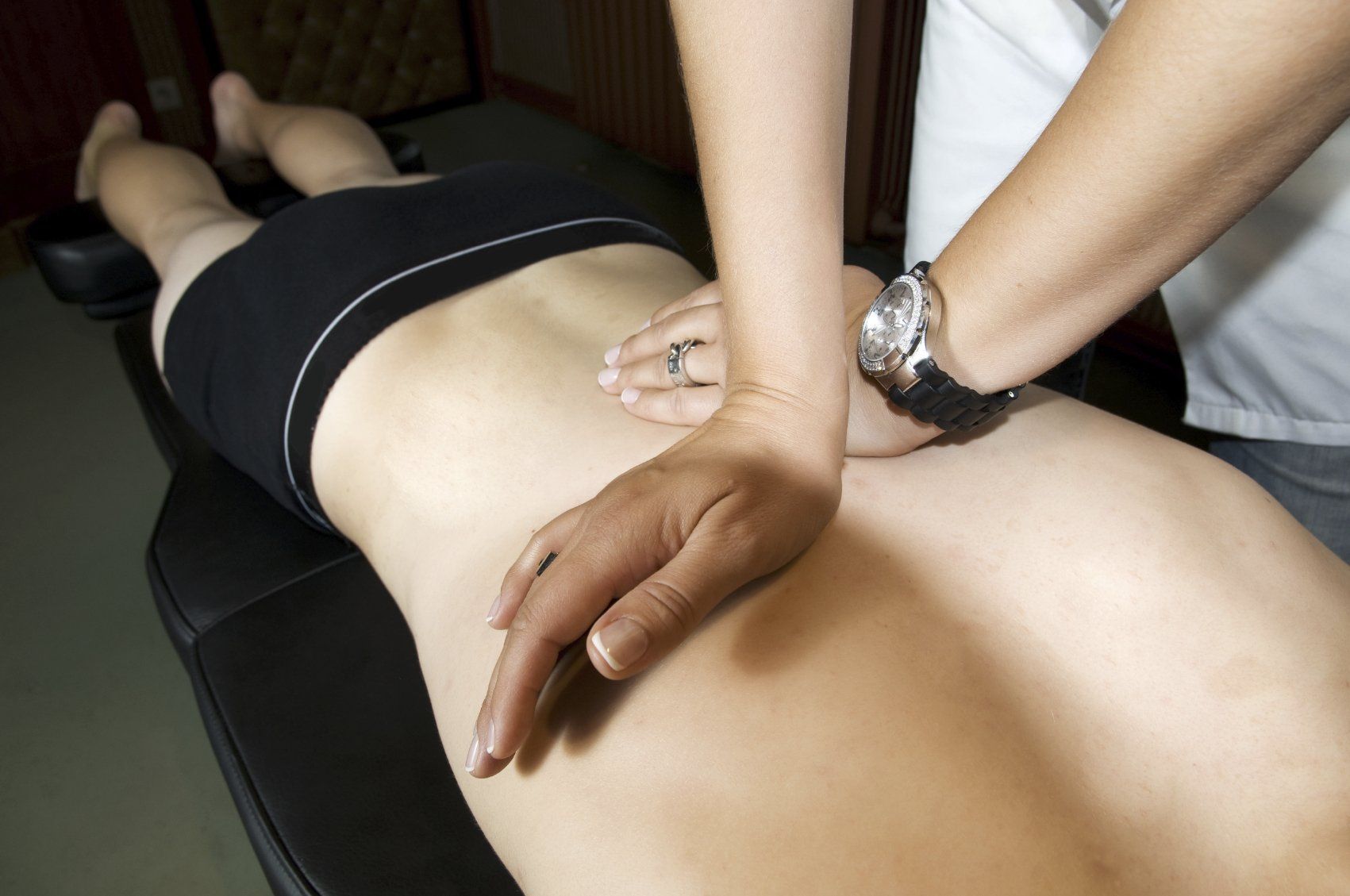What is Chiropractic?

Chiropractic is a natural form of health care that focuses on subluxations (misalignments) to your spinal column, which effect your nervous system. When your nervous system does not work properly, your body cannot heal itself, resulting in poor health or function. These subluxations can reduce your bodies ability to adapt to its ever changing environment. Chiropractors use specific spinal adjustments to correct the subluxations and restore proper function to the nervous system, permitting normal nerve transmission and assisting your body to heal on its own. The Chiropractic spinal adjustment is a precise force to a specific part of the spinal segment that corrects the misalignment.
Chiropractic is also utilized for overall wellness care and increased quality of performance. When you are in proper alignment, and your nervous system works as it should, our ability to react and adapt to every day activity functions at its best.
"Medicine is the study of disease and what causes a man to die. Chiropractic is the study of health and what causes man to live"
- B.J. Palmer, The Developer of Chiropractic
Chiropractic Techniques

While studying at Palmer College of Chiropractic, Dr. Jessica learned different techniques as part of her curriculum. The Palmer Package is a group of manual adjusting techniques. With these different techniques, we are able to cater to individual needs of each patient and make the adjustment more effective and comfortable. The Palmer Package includes Diversified, Gonsted, Activator and Thompson Drop techniques. In addition to what Dr. Jessica learned at school she has also been trained in by the International Chiropractic Pediatric Association (ICPA) in techniques specific to pregnancy and pediatrics.
Prenatal Chiropractic Care

Chiropractic care during pregnancy is essential as there are several physiological and endocrinological changes that occur in preparation for creating the best environment for the developing baby.
Making sure there is pelvic balance and alignment is another reason to receive Chiropractic care during pregnancy. When the pelvis is misaligned, it can cause intrauterine constraint, reducing the amount of room available for the baby. A misaligned pelvis can also make it difficult for the baby to move into the best possible position for delivery. This can in turn affect the mother's ability to have a natural, non-invasive birth.
Dr. Lockhart is highly trained in prenatal chiropractic care. She is certified in The Webster Technique which is designed specifically for pregnancy to promote optimal pelvic and spinal alignment to ensure optimal pregnancy, fetal growth and a healthy labor and delivery. Dr. Lockhart's chiropractic table is equipped with an abdominal swing away so there is room for soon to be mom's growing belly, as well as a set of pregnancy pillows to make your adjustment as comfortable as possible.
What are the benefits of chiropractic care during pregnancy?
Chiropractic care during pregnancy can provide benefits for the soon to be mothers. Potential benefits of chiropractic care during pregnancy include and during labor:
Maintaining a healthier pregnancy
Controlling symptoms of nausea
Reducing the time of labor and delivery
Relieving back, neck or joint pain
Preventing any unnecessary intervention during labor
For more information and articles on pregnancy and chiropractic check out ICPA4kids.org
Chiropractic and Children

Chiropractic Care and Acute Conditions in Children
Misalignments in a child's spine can start as early as birth. 95% of babies are misaligned at birth, especially when medical intervention is used in delivering your baby. Acute conditions not only can start from birth, but as the child grows they can come from falls, injuries sustained from sports and other accidents. Chiropractic care benefits children by gently correcting the spinal alignment to promote proper nerve function and growth and also improve overall health. When vertebral joint are misaligned either from the birthing process or from a blow or fall, muscle tissue and nerves may also be affected. When children have misalignments a number of conditions may present such as colic, fussiness, trouble nursing, constipation, acute earache, upper respiratory issues, muscle (growing) pains, neck and back pain. Chiropractic spinal adjustments are a gentle approach to restoring proper spinal motion and relieves nerve pressure, allowing the body to heal properly and removing the possible causes of conditions.
Chiropractic Care and Chronic Conditions in Children
Chiropractic America reports that natural, drug-free chiropractic care is sometimes more effective than traditional medical approaches for chronic earache, scoliosis, and neck pain. Headaches and sleep disorders of nonspecific causes respond well to spinal adjustments, which affect and repair interrupted neural pathways. Asthma, allergy symptoms, and patterns of attention-deficit hyperactivity disorder (ADHD) may also be improved with chiropractic care.
Chiropractic Care and Prevention of Ailments
Regular routine Chiropractic care starting at a young age may help prevent the above ailments before they begin. Proper spinal alignment may delay or prevent degenerative bone or joint disease. In addition to maintaining overall health, regular visits will help instill the value of preventative and proactive health care in children. They will be more likely to monitor and manage their health as they grow up and less likely to be afraid or in denial of any health issues.
- Chiropractic kids start healthy and stay healthy-
Wellness Care

Chiropractic care is often thought of when you are experiencing some kind of pain, whether it is neck pain, back pain or headaches. What many do not realize, is that chiropractic is a health care that involves all aspects of wellness, including exercise, nutrition, personal development, stress relief and overall feeling great. Wellness care is designed to maintain your improved health and spinal function, and prevent the return of original condition once spinal correction has been obtained.
Athletes and Chiropractic
Experts estimate that 90 percent of all world-class athletes use chiropractic care to prevent injuries and increase their performance potential. All NFL teams rely on Doctors of Chiropractic in different ways. Even if you are not a high performance athlete, prevention saves time and money by helping you stay well and perform your daily tasks the best you can.
Preventing "seasonal" sickness
Regular chiropractic care, healthy lifestyle choices and low stress helps decrease the chances of you getting those "seasonal" sickness. When your spine is in proper alignment and there is no added stress on your nervous system, your immune system can function the way that it is meant to. When your immune system is fully functional, then your body is able to fight off sickness that is common in the changes seasons. Many patients reported having more energy and overall feeling well with regular care, as well as not being sick when others around them are.
Nutrition and Corrective Exercises

Corrective Exercises
During your care, Dr. Lockhart may discuss with you some home exercises and stretches for you to perform to continue to forward progress and enhancement of your care and overall health. These exercises will be based off of your care and what you need as an individual. She will make sure they are modified to what you can do.
Nutrition
Health not only comes from a well functioning nervous system, but also what we put in our body to nourish it. This includes food, fluids and supplements. When it is appropriate in your care, nutrition and supplements can be advised. We carry Standard Process and Mediherb supplements.
For more information on Standard Process visit standardprocess.com